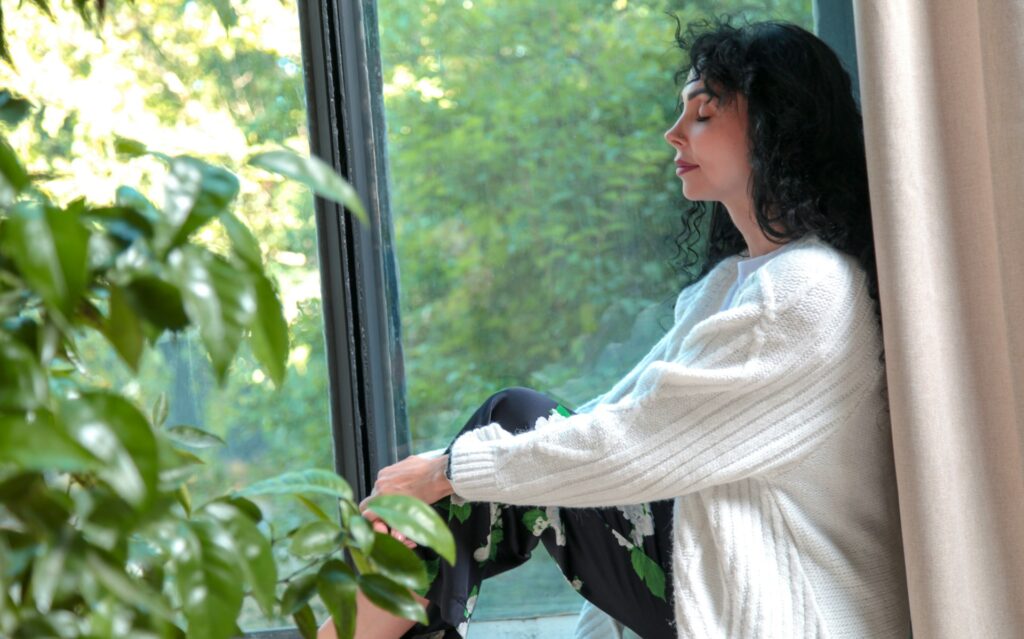When someone grows up or spends years in environments where their feelings are ignored, minimised, or brushed off, it changes how they communicate.

Instead of expressing emotions freely, they start editing themselves—softening what they say, questioning their own reactions, and trying to avoid being “too much.” Over time, it shows up in subtle, everyday phrases. These aren’t random throwaways. They’re subtle signs that someone’s been made to feel like their emotions are inconvenient or invalid. Here are some things people often say when they’ve got used to not being heard.
1. “It’s probably not a big deal, but…”

This line is classic emotional downplaying. It’s often used as a protective buffer—to prepare for being ignored or told they’re overreacting. People who say this have learned to shrink their emotions before someone else does it for them. They’re not trying to be dramatic. They’re trying to gauge if it’s safe to share. Leading with minimisation helps them feel a little more in control, even if it means their needs get overlooked again.
2. “Sorry, I don’t mean to be annoying…”

Apologising for taking up space emotionally is a common habit among people who’ve been dismissed. They’re often used to their feelings being seen as excessive, disruptive, or inconvenient. So, they pre-apologise—just in case. It’s not about guilt as much as it is about self-protection. If they soften the “impact” of their emotions, they hope maybe they won’t get the usual eye-roll or silence in return.
3. “Never mind, it doesn’t matter.”

This is a big one. Usually said mid-conversation, often after a pause or when they sense disinterest, it’s their way of pulling the plug before someone else does. They’ve learned to retreat emotionally before it stings. They might have started to open up, then felt the energy change, or just assumed it would. This cuts the moment short, often with a smile, but it’s really a form of quiet emotional shutdown.
4. “Maybe I’m just being sensitive.”

Translation: “I’ve had my emotions invalidated so many times that I’m not sure if they’re real anymore.” When people hear this, they often rush to reassure—but the person saying it isn’t fishing for comfort. They’re checking in with themselves because they’ve been made to feel like their emotions don’t belong.
They’re not unsure—they’ve just learned to question their reactions before someone else does. This is a leftover from years of being told to toughen up, calm down, or let it go.
5. “I didn’t want to bother you with it.”

This might sound thoughtful, but it’s often laced with past disappointment. People say this when they’ve opened up in the past and been met with irritation, avoidance, or even punishment. So now, they withhold. Not because they don’t need support, but because they’ve been taught that their feelings are a burden. And even when someone asks how they are, this voice in their head whispers, “Don’t make it about you.”
6. “It’s fine, I’m used to it.”

This one often masks a deep well of resignation. It’s not acceptance, it’s exhaustion. When someone says this, they’re not okay with what happened. They’ve just stopped expecting anything different. It’s a coping strategy. They’ve figured out that expressing hurt usually doesn’t change the outcome, so they pre-emptively shut the door on their own discomfort.
7. “I just didn’t want to make things awkward.”

People who are used to walking on eggshells often worry about disrupting the emotional balance in a room. They’ve been taught to prioritise harmony over honesty—even if it means swallowing their feelings. They’re not being passive; they’re staying safe. Avoiding awkwardness is really about avoiding potential rejection or confrontation. They’ve had enough of both.
8. “Other people have it worse.”

This sounds humble, but it’s often a form of emotional self-silencing. It’s what people say when they’ve been told (directly or indirectly) that their problems don’t count unless they’re extreme. They’re not trying to minimise other people—they’re trying to justify why they don’t speak up more. This mindset often stops people from asking for help, even when they really need it.
9. “I didn’t want to overreact.”

When someone uses this one, it’s often because they’ve been accused of exactly that in the past. They’re not unsure of how they feel—they’re afraid of how it’ll be received. This kind of internal censoring starts young and sticks. Instead of feeling confident in their reactions, they second-guess and tiptoe. It’s not that they’re emotionally unstable—they just haven’t been shown emotional safety.
10. “I’m fine, honestly.”

This one is often automatic. It comes out even when they’re anything but fine. People say this when they’ve learned that opening up usually gets them nowhere—or worse, gets them dismissed. It’s a survival script. They might even believe it in the moment, but underneath, there’s usually a whole storm of things they’ve convinced themselves aren’t worth mentioning.
11. “Forget I said anything.”

That moment of vulnerability? They’ve already regretted it. When someone says this, they’re withdrawing—not because they didn’t mean it, but because the reaction they got (or didn’t get) felt like a dead end. This is emotional backpedalling. It’s an instinctive way to undo the exposure, to pull the feeling back into the vault where it feels safer, even if it stays unresolved.
12. “I’ll figure it out.”

This one sounds independent, but it often hides loneliness. People who say this are used to handling things alone because they’ve learned not to expect support. They don’t want to be a burden, and they don’t want pity. So instead, they rely on themselves, even when they’re barely hanging on. It’s not pride. It’s emotional survival.
13. “It’s no big deal.”

This is a go-to minimiser for people who aren’t used to having their concerns taken seriously. If something hurts, they instinctively try to make it sound smaller so it doesn’t seem like they’re overdoing it. In reality, the thing often is a big deal—it’s just been brushed off enough times that they’ve learned not to expect validation. Saying it’s “no big deal” makes rejection sting a little less.
14. “It’s not your fault.”

Sometimes, people who’ve been dismissed for years rush to protect other people’s feelings before acknowledging their own. They say things like this to prevent guilt or conflict, even if they’re deeply hurt. They’re used to taking emotional responsibility for everyone else. This sentence is their way of making sure no one feels uncomfortable, even when they’re the ones suffering.
15. “I don’t really talk about that stuff.”

This usually comes from someone who’s been punished, overtly or subtly, for talking about their emotions. Maybe they’ve been laughed at, dismissed, or made to feel dramatic, so they learned to just shut it down. It’s not that they don’t feel things—it’s that they’ve learned feelings aren’t welcome. So instead of risking another bad reaction, they build walls and steer every conversation away from anything real.
16. “I’m probably overthinking it.”

This one’s another internalised reflex. Instead of sitting with their intuition or processing their feelings, they assume they’re wrong for even noticing them. It’s not overthinking—it’s just thinking. But when you’ve been told your emotional responses are exaggerated or untrustworthy, it’s hard to believe your own gut anymore.
17. “It’s not a big deal, I promise.”

Another classic minimiser, this one’s all about control. They’re trying to contain the emotional fallout before it even happens. Maybe they’ve been accused of making things dramatic, so now they bend over backwards to look chill—even when they’re not. This one is less about honesty and more about damage control. They’re hoping that if they keep things light, they won’t get dismissed. Again.
18. “I know I shouldn’t feel this way.”

Here’s the thing: there’s no such thing as a wrong feeling. However, when you’ve been repeatedly told that your emotions are irrational or inconvenient, you start to internalise that shame. This one reveals that conflict—between what they genuinely feel and what they believe they’re “allowed” to feel. It’s heartbreaking, because it shows just how long they’ve been trying to emotionally self-police.
19. “It’s whatever, honestly.”

“Whatever” is often code for “I care a lot more than I’m letting on, but I don’t want to show it.” It’s a protective phrase, used to shut down conversations that feel too vulnerable or too risky. Underneath the casual tone is often hurt, confusion, or deep disappointment. The problem is that saying “whatever” helps them distance themselves from it before someone else does.
20. “I’m used to it.”

This is the phrase that says it all. Not because things don’t hurt anymore, but because the pain has become so familiar, they’ve stopped expecting anything else. It’s not resilience—it’s resignation. When someone says this, listen closely. They’re not okay with what’s happening—they’re just tired of hoping for more and being let down. What they really need isn’t pity. It’s someone who will finally take their feelings seriously.


